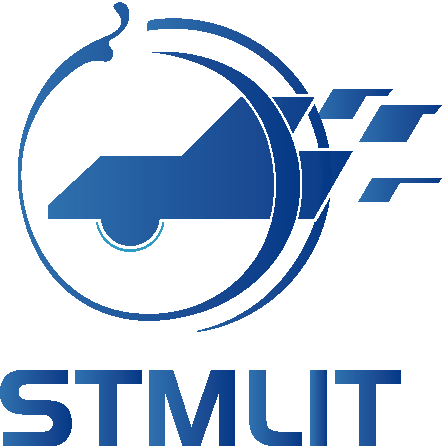

Prof. Qing Yu
Jimei Univerisity, China
Title: Port State Control Inspection for Paris MoU: New Risk Factors and Probability Training using Big Data
Abstract: Given to the increasing traffic volume in ports in recent years, ship selection and inspection procedure in the port state control (PSC) should be improved to reduce any unnecessary delay caused by the inefficient inspections. This study aims to newly use a data training technique and the newest PSC data to improve the usage of Bayesian Network (BN) to assess detention risk to a point where risk factors are identified, interrelationships among the factors are analysed and prior probability training based on big data is obtained more easily. To construct the BN model, a Bayesian theorem-based machine learning approach is adopted to ensure the obtained model is objective and reliable. The model is developed based on 1880 inspection records in the Paris Memorandum of Understanding (MoU) regime between 1st January 2017 and 31st March 2020. The obtained model not only present the probability distribution of each factor but also explore interrelationships among them. Compared to the Ship Risk Profiles (SRP) model, the used data-driven structure learning algorithm is more convenient and useful. The analysis results provide insights for ship owners to manage ship detention risk while support port authorities to prioritize the ship checklist and utilise more efficient ship inspection.
Experience: Qing Yu is Associate Professor of School of Navigation at Jimei University, CN. He received his MSc in Maritime Operation and Managements from City University London, UK, in 2014, and PhD in Transportation information control engineering from Wuhan University of Technology, CN, in 2006. Prof. Yu’s research interests are Maritime safety, ship traffic controlling and sustainability of transport networks, particularly maritime systems. His research findings have been published in over 30 refereed papers in risk and transport areas, including 20 SCI/SSCI-cited journal papers (Google citation:196, H-index:7).
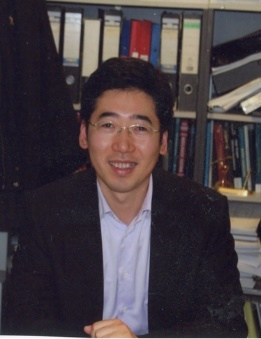
Prof. Zaili Yang
Liverpool John Moores University, UK
Title: A study on maritime autonomous surface ship safety analysis
Abstract: This presentation is to introduce the findings of a few maritime autonomous surface ship (MASS) safety studies, including the risk assessment of the operations, cybersecurity using blockchain, route planning and human factors relating to MASS. New research developments in the area are discussed to show the insights on the challenges of the quantitative developments of safety analysis of MASS. Four cases are chosen to demonstrate the possible solutions to the above identified safety challenges when running MASS at sea.
1) Identification of hazards and assessment of risks of the operations of MASS
2) Development of a trust management system for cybersecurity of MASS
3) Route planning of MASS for anti-collision between MASSs ad between MASS and manned ships.
4) Human factors in MASS operations.
Experience: Zaili Yang is Professor of Maritime Transport and Co-Director of Liverpool, Logistics, Offshore and Marine Research Institute at Liverpool John Moores University (LJMU), UK. He received his BEng in Maritime Transportation from Dalian Maritime University, China, in 2001, MSc in International Transport from Cardiff University, UK, in 2003, and PhD in Maritime Safety from LJMU, UK, in 2006. Prof. Yang’s research interests are analysis and modelling of safety, resilience and sustainability of transport networks, particularly maritime systems. Prof. Yang has received more than £6m external grants (£4m as the PI) from the EU and UK EPSRC, including a prestigious ERC consolidator grant. Prof. Yang has completed 7 postdoctoral and 37 PhD projects. He currently has 3 PDRAs and 10 PhD students under his supervision in the research areas of maritime safety and logistics operations. His research findings have been published in over 300 refereed papers in risk and transport areas, including 130 SCI/SSCI-cited journal papers (WoS citation: 3800, H-index:34; Google citation:6400, H-index:45). Prof. Yang is the AE/EMB of 24 journals (e.g. Transport Research Part E). He has received 14 paper awards (e.g. IMechE Journal Part M) and 4 research awards (e.g. Northeast Asia Logistics Award 2018).
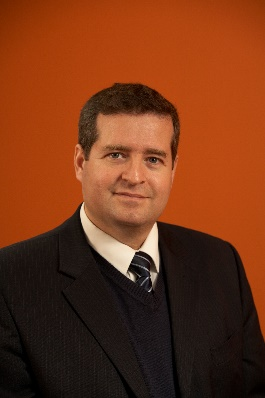
Assoc. Prof. LUCIANO BATISTA
Aston University, UK
Title: Sustainable Logistics and Supply Chain Management for the Circular Economy: the enabling role of digital technologies
Abstract: To respond to an increasing pressure on natural resources, circular economy (CE) aims to create value with the ultimate goal of achieving a more resource effective and efficient economic system. CE will be central to global efforts towards sustainability and to achieve climate neutrality targets. For example, the European Circular Economy Action Plan aims, inter-alia, to ensure that waste is prevented and resources are used and reused for as long as possible. The implementation of CE principles requires a fundamental redesign of product concepts, service offerings, and logistics and supply chain systems to support circular operations. Innovations in these areas are usually shaped by the adoption and utilization of digital technologies.
Many firms have started using digital technologies to implement more sustainable logistics and supply chain management. Digital technologies such as 3D printing, blockchain, artificial intelligence, and IoT have seen increased adoption in recent years. Especially the COVID-19 pandemic pushed these technologies ahead, and going forward, the development is expected to accelerate further, as the adoption of digital technologies to help CE operations can potentially lead to enhanced competitiveness, productivity, and performance. This seminar will explore how the innovative use of variety of digital technologies support the implementation of sustainable logistics and supply chain management ecosystems aligned with key principles and practices advocated by CE.
Experience: Luciano is the Founding Director of CEAS (Centre for Circular Economy and Advanced Sustainability) at Aston Business School. He is also Principal Investigator of the UKMSN+ (UK Manufacturing Symbiosis NetworkPlus – www.ukmsn.ac.uk), a large community of academics and practitioners concerned with industrial transitions to the circular economy. Luciano is also Chartered Member of the Chartered Institute of Logistics and Transport, where he contributes to the Institute’s Logistics Research Network forum, as well as member of the Microeconomics of Competitiveness group at Harvard Business School. His research focuses on sustainable operations and supply chains, with particular emphasis on industrial transitions to the circular economy, circular economy business models, industrial symbiosis innovations for the circular economy, and applications of digital technologies to enable industrial transitions to the circular economy.
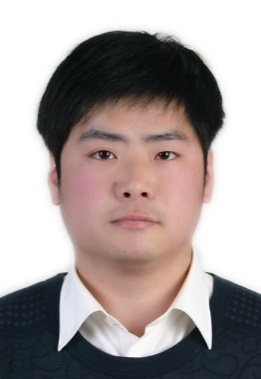
Dr. Haitong Xu
University of Lisbon, Portugal
Title: Guidance and control of underactuated maritime autonomous surface ship
Abstract: Maritime Autonomous Surface ships will have broad application prospects in the future maritime industry. They are able to perform advanced operations and tasks in dangerous or inaccessible places. Consequently, they have been widely used both in navy applications and even some commercial applications such as marine survey, coast patrol, inspection and operation of underwater production systems. Guidance systems are critically important for the overall performance and safety of autonomous vehicles, because they are concerned with the transient motion behaviour associated with the achievement of motion control scenarios such as path following, path tracking, and path manoeuvring.
A time-varying vector field guidance law used for path-following control of underactuated autonomous ships was proposed and a sliding mode control was introduced for heading autopilot design. The main result is a time-varying vector field guidance law in cascade with the autopilot, and a theorem was presented to ensure that the equilibrium point of the cascaded system is uniformly semiglobally exponentially stable using the Lyapunov method and cascaded theory. The proposed time-varying vector field guidance law can also be applied to vehicles in general such as aircraft, underwater vehicles, drones and autonomous vehicles.
Experience: Haitong Xu is a PhD researcher of Naval Architecture and Ocean Engineering at CENTEC, IST University of Lisbon. His research interests include marine cybernetics, ship hydrodynamics, and model tests, focusing on guidance navigation and control system (GNC), nonlinear control theory, hydrodynamic coefficient estimation, mathematical maneuvering models, machine learning methods, data acquisition (DAQ) and developing prototypes. He has published 43 original scientific research papers. That consists of 23 papers published in SCI journals, 8 book chapters and 9 conference papers. (Google citation:489, H-index:14).
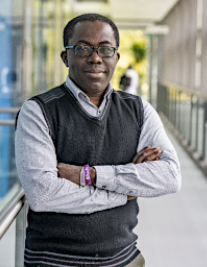
Dr. Simonov Kusi-Sarpong
University of Southampton, UK
Title: Blockchain enabled supply chain mapping and sustainable supply chains
Abstract: This study investigates the impact of blockchain technologies on supply chain mapping, supply chain integration and supply chain sustainability. Data from 132 Malaysian Electrical and Electronics firms were collected using a close-ended questionnaire. The study employs Partial Least Squares-Structural Equation Modelling (PLS-SEM) and Partial Least Squares-Multi Group Analysis (PLS-MGA) for analysing the hypothesized relationships. The results show that blockchain technologies do not have a direct impact on supply chain sustainability but via SC integration and SC mapping. The study's findings imply that the notion of the sustainable supply chain can be significantly attained by mapping upstream, midstream, and downstream supply chains. The well-mapped supply chain can further improve supply chain sustainability. The findings of the study also suggest the adoption of blockchain technologies as a broad-based strategy to attain multi-tier goals, for example, supply chain mapping, sustainability, and integration.
Experience: I have experience publishing in World-leading and International-excellent High Ranking and Impactful international peer-reviewed journals. My research contribution is evident by the fact that I am highly research active with a considerable list of papers that consider sustainability within operations and supply chains. Some of the journals include: Technological Forecasting and Social Change; Omega: The International Journal of Management Science; International Journal of Production Economics; International Journal of Production Research; Journal of Cleaner Production; Production Planning and Control; Transportation Research Part A: Policy and Practice; Transportation Research Part E: Logistics and Transportation Review; Journal of the Operational Research Society; Business Strategy and the Environment; Industrial Management and Data Systems; Resources Policy; and Resources, Conservation and Recycling among others. My research works, and network combines academic rigour and transformation impact, particularly in developing countries such as China, Ghana, Iran, India, UAE, Pakistan, Malaysia, and Bangladesh.
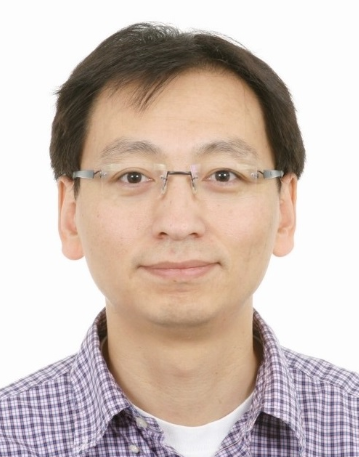
Dr. Lianyu Chu
President of CLR Analytics Inc., USA
Title: Upgrade the Conventional Vehicle Counting and Classification Sites to Smart Infrastructure
Abstract: The recently developed technologies, such as Inductive Loop Signature (ILS), Artificial Intelligence (AI), Edge Computing, Cloud Computing, 4G and 5G cellular data communication, and Internet of Things (IoT), and bring the opportunity to significantly improve the operation and maintenance of the existing vehicle counting and classification systems. The focus of this presentation is to introduce how these new technologies can be incorporated into the design and operation of a smart, sustainable, deployable, affordable, and scalable and widely deployable vehicles classification system via the VSign Smart Vehicle Classification System case study. The VSign system was originally developed based on a sponsorship of the USDOT Small Business Innovation Research program and overseen by the FHWA Office of Highway Policy Information between 2014 and 2017. Until now, VSign has been deployed to Alabama, Alaska, California, Colorado, Delaware, New Hampshire, Minnesota, and Washington, with different variations. Based on the existing deployment sites, the benefits from smart Infrastructure enabled by these new technologies will be demonstrated. One benefit is the smart maintenance which allows maintenance engineers easily track the loop sensor and system operation issues via alerts, fix issues remotely instead of site visiting, and solve data issues from its root. Another benefit is to improve vehicle classification result through adding more knowledge about new vehicle types into the AI library.
Experience: Dr. Lianyu Chu is a researcher, consultant, innovator, and entrepreneur. Dr. Chu has multidisciplinary background. He holds a bachelor and a master degree in Electronic Engineering and a Ph.D. degree in Transportation. He started his career at the University of California Irvine in 2000 and then University of California Berkeley. As the lead researcher at the California Advanced Transportation Management System (ATMS) testbed from 2000 to 2015, he was involved in more than many emerging research projects on traffic detection, traffic control, traffic management, and ITS evaluation. He is an expert in traffic simulation modeling and heavily involved in the development of the capacity-enhanced simulation tool for various transportation applications, including traffic control, ITS modeling and evaluation, policy investigation, operational improvement, construction management, TMC operator training system, emission, etc. He co-founded CLR Analytics Inc. (CLR) to conduct cutting-edge consulting projects and develop technologies in 2007. He was the PI for eight USDOT Small Business Innovation Research projects aiming to develop and commercialize smart city and smart transportation technologies using Artificial Intelligence (AI), Internet of Thing (IoT), edge-computing, cloud computing, and big data analytics. Recently, his main focus is to improve traffic data collection and quality through upgrading the conventional traffic detection system to smart infrastructures. So far, he has participated more than 90 research and consulting projects and published more than 100 papers and reports.
to be continue